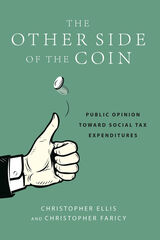4 start with O start with O

Responding to the growing need for tried-and-trusted solutions to the reproductive health care issues confronting millions of women worldwide, Obstetrics and Gynecology in Low-Resource Settings provides practical guidelines for ensuring the delivery of quality OB/GYN care to women in resource-poor countries. Including contributions from leading clinicians and researchers in the field, this welcome overview fills an important gap in existing medical literature on women’s health care and will be an invaluable resource for doctors, clinicians, and medical students at all stages of their careers who work in the global health arena.
The reproductive health risks that all women face are greatly exacerbated when health care facilities are inadequate, equipment and medications are in short supply, and well-trained medical staff are few and far away. Often in these settings, the sole doctor or medical professional on hand has expertise in some areas of women’s reproductive care but needs a refresher course in others.
This informative guide features hands-on, step-by-step instruction for the most pertinent OB/GYN conditions—both acute and chronic—that health care workers in the field confront. The authors examine a wide range of topics, including: strategies to reduce maternal mortality and stillbirths; infectious and sexually transmitted diseases, including malaria and HIV; cervical cancer; contraception; prenatal, delivery, and newborn care; and complications arising from gender-based violence and female genital cutting. Published in a convenient format with a durable binding, this reference will be an essential companion to health care providers throughout the world.

Tax expenditures seek to accomplish many of the goals of direct government expenditures, but they distribute money indirectly, through tax refunds or reductions in taxable income, rather than direct payments on goods and services or benefits. They tend to privilege market-based solutions to social problems such as employer-based tax subsidies for purchasing health insurance versus government-provided health insurance. Drawing on nationally representative surveys and survey experiments, Ellis and Faricy show that social welfare policies designed as tax expenditures, as opposed to direct spending on social welfare programs, are widely popular with the general public. Contrary to previous research suggesting that recipients of these subsidies are often unaware of indirect government aid—sometimes called “the hidden welfare state”—Ellis and Faricy find that citizens are well aware of them and act in their economic self-interest in supporting tax breaks for social welfare purposes. The authors find that many people view the beneficiaries of social tax expenditures to be more deserving of government aid than recipients of direct public social programs, indicating that how government benefits are delivered affects people’s views of recipients’ worthiness. Importantly, tax expenditures are more likely to appeal to citizens with anti-government attitudes, low levels of trust in government, or racial prejudices. As a result, social spending conducted through the tax code is likely to be far more popular than direct government spending on public programs that have the same goals.
The first empirical examination of the broad popularity of tax expenditures, The Other Side of the Coin provides compelling insights into constructing a politically feasible—and potentially bipartisan—way to expand the scope of the American welfare state.


This powerful book lets us in on the conversations of low-income mothers from Appalachian Ohio as they talk about the welfare bureaucracy and its remarkably advanced surveillance system. In their struggle to care for their families, these women are monitored and assessed through a vast network of supercomputers, caseworkers, fraud control agents, and even grocers and neighbors.
In-depth interviews show that these women focus less on the right to privacy than on a critique of surveillance that lays bare the personal and political conflicts with which they live. And, while they have little interest in conventional forms of politics, we see widespread patterns of everyday resistance as they subvert the surveillance regime when they feel it prevents them from being good parents. Ultimately, Overseers of the Poor demonstrates the need to reconceive not just our understanding of the surveillance-privacy debate but also the broader realms of language, participation, and the politics of rights.
We all know that our lives are being watched more than ever before. As we struggle to understand and confront this new order, Gilliom argues, we need to spend less time talking about privacy rights, legislatures, and courts of law and more time talking about power, domination, and the ongoing struggles of everyday people.
READERS
Browse our collection.
PUBLISHERS
See BiblioVault's publisher services.
STUDENT SERVICES
Files for college accessibility offices.
UChicago Accessibility Resources
home | accessibility | search | about | contact us
BiblioVault ® 2001 - 2024
The University of Chicago Press









